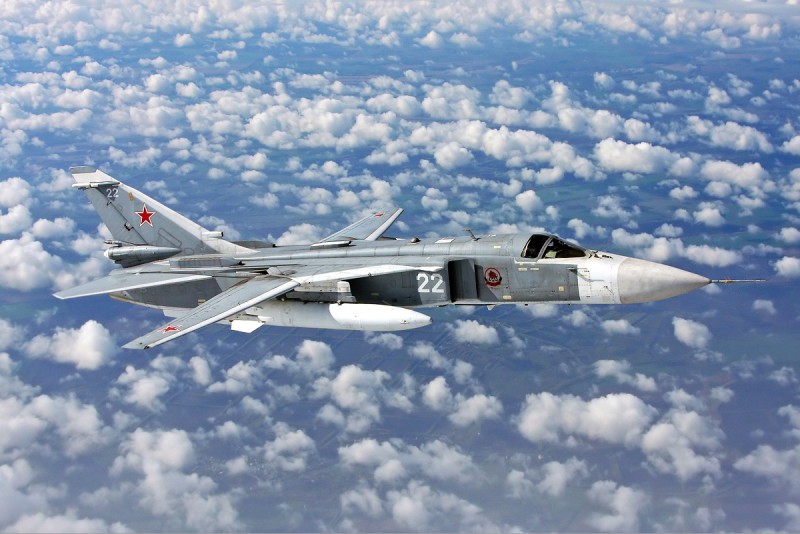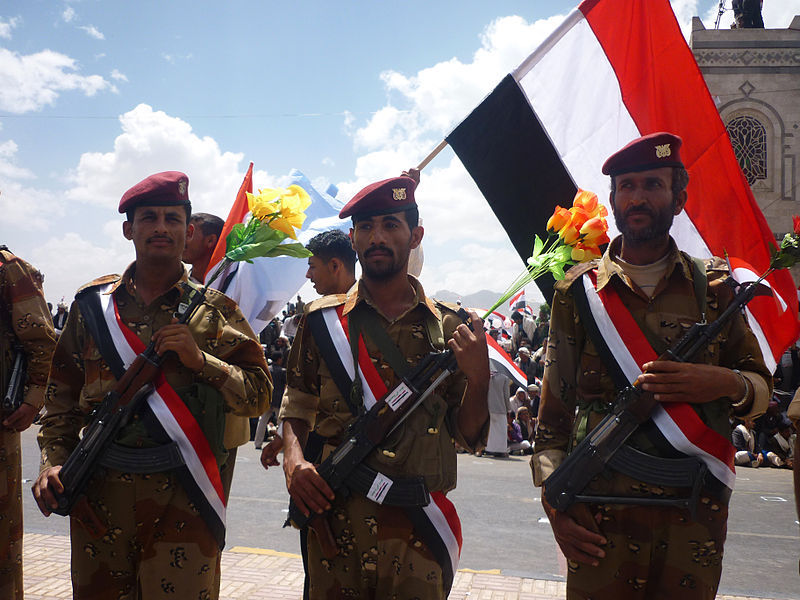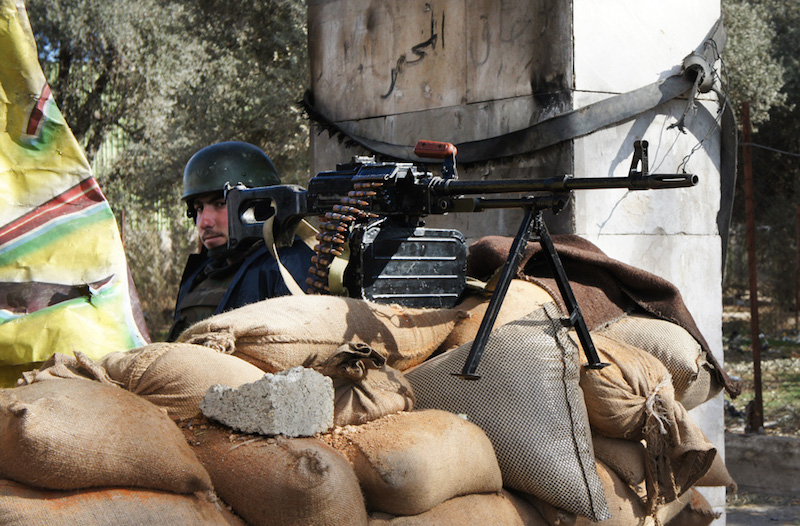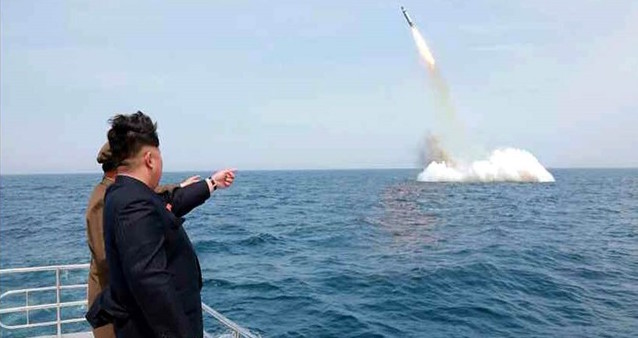On January 30, 2016, Turkish security forces reported the crossing of a Russian Su-34 bomber into the country’s territory. This is yet another episode in a series of Turkish airspace violations by the Russian Federation over the past few months, which in November 2015 culminated in the Turkish downing of a Russian bomber. Given the frequency and persistence of these incursions, particularly following a dangerous escalation of tensions, and that the Russian Air Force is actively engaged in bombing campaigns alongside Bashar al-Assad’s forces in neighbouring Syria, these overflights are not likely to cease anytime soon. As Turkey is a signatory to the North Atlantic Treaty, whereby article five dictates that “an armed attack against one or more of them… shall be considered an attack against them all,” as well as an important member of the Alliance, the question for defence planners is where does this leave NATO?
Endless Incursions: A History of Russian Overflights into Turkey
Since the start of the Syrian conflict, Russian support for Syrian President Bashar al-Assad has been unwavering. The Russian Federation not only maintains a number of military bases across the country, but is one of the Assad regime’s largest suppliers of armaments and military vehicles. Most important, and perhaps the Assad regime’s lifeline, is the involvement of the Russian Air Force in bombing campaigns against anti-government rebels, which Moscow consistently asserts are all terrorists bent on civil destruction. Consequently, since the introduction of Russian warplanes into the Syrian conflict on September 30, 2015, government forces have made great gains against Western-backed rebels. Of notable significance are the gains made by the Syrian Arab Army in Aleppo, Hama, and Homs, as well as the capture of key supply routes in the country’s coastal region, just near the Turkish border.
Regarding the social impacts of the Syrian conflict, Turkey has certainly not been immune from the effects of the civil war. It not only continues to house more than two million Syrian refugees, but is often forced to contend with the spillover of violence across its frontier. While these developments pose significant challenges for Turkey on their own, a primary concern for the Turkish military has been the alarmingly high number of unauthorized incursions into its airspace by Russian military crafts over the past few months. Since October 2015, when the Turkish Ministry of Foreign Affairs first announced the entrance of a Russian military aircraft into the airspace over its Yayladağı/Hatay region, relations between the two states have been marred by tension. While the Russian Federation has claimed that these incursions were unintentional, both Turkey and NATO however have publicly rejected these explanations.
However, it was not until Turkish forces shot down a Russian Su-24 bomber on November 24, 2015, following another unauthorized incursion by the jet into Turkish airspace, that a dangerous escalation of conflict erupted between the two sides. In response, Russian President Vladimir Putin had not only referred to Turkish actions as a “stab in the back,” the country was hit with a host of Russian sanctions that are anticipated to have a tremendous impact on its economy. Included in these sanctions are a ban on the import into Russia of Turkish fruits, vegetables, poultry and salt; a ban on the sale of charter holidays for Russians to Turkey; and a ban on construction projects with Turkish firms in Russia.
Standing in Solidarity: Implications for NATO
In the face of these airspace violations, NATO members have stood in solidarity with Turkey against Russian actions. Following Russian’s first incursion into Turkish airspace on October 3, 2015, the North Atlantic Council, NATO’s key decision-making body issued a statement condemning Russia and called on it to “cease and desist, and immediately explain these violations.” Additionally, on January 30, 2016, following yet another unauthorized Russian incursion, NATO Secretary General, Jens Stoltenberg issued a statement that called on Russia to “act responsibly and to fully respect NATO airspace,” reiterating the Alliance’s support for Turkey and its territorial integrity.
While one may question the willingness of NATO allies, such as the United States to engage in a military confrontation with Russia over a matter as trifling as an airspace violation, both the strength of these statements and the deployment of assets to Turkey are indicative of the Alliance’s resolve to defend its member. Since the eruption of conflict in Syria, NATO members have supported Turkey through the deployment of Patriot surface-to-air missiles along the Turkish-Syrian border, which have provided the country with an additional layer of defence against missile fire emanating from the Syrian conflict. On December 18, 2015, as well, the Alliance agreed to provide Ankara with a package of ships and aircrafts, including an AWAC surveillance plane, in order to strengthen Turkey’s defences along its border with Syria.
A Remaining Divide? The Future of NATO-Russian Relations
Although a ceasefire was recently brokered between warring parties in Syria, the situation is reflective of a fundamental challenge surrounding the Alliance’s global role: it’s deteriorating relations with Russia. Shortly after the Russian annexation of Crimea in 2014, NATO had suspended all practical civilian and military co-operation with Russia, most of which had previously occurred under the framework of the NATO-Russia Council. Therefore, while NATO has issued statements condemning the Russian airspace violations, the absence of these structures has limited the development of any co-operative solution to this matter.
A permanent resolution to Syrian civil war will likely not occur without the establishment of a full-fledged political solution, and consequently it is difficult to predict when the next conflict between Turkey and Russia will erupt. With rumblings of a potential rapprochement between NATO and Russia, in the form of formal talks possibly scheduled for March 2016, there appears to be hope for the NATO-Russian relationship. And given increased Russian assertiveness in NATO’s theatre of operations, such as the Baltics and Eastern Europe, these mechanisms will be critical in de-escalating any future conflicts with Russia, either with a NATO member or the Alliance more broadly.




